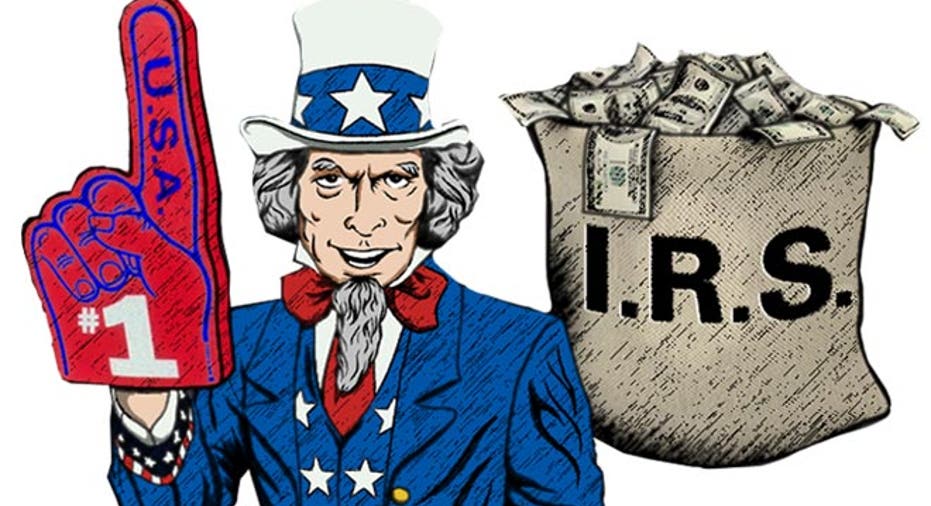Why You Don't Want to Owe Uncle Sam

With April 15th fast approaching, what if you don’t have the cash to pay your taxes? Should you consider delaying payment, or not filing taxes at all? The short answer is no – especially when it comes to failing to file your taxes on time.
The IRS applies penalties for both failure-to-file and failure-to-pay, but failure-to-file penalties are much greater. That penalty is 5% of your unpaid taxes per month or any part of a month that the return is late, up to 25% of your total taxes owed. There is a minimum penalty of $135 or the balance of your tax bill, whichever is smaller. On top of that you will owe interest on the unpaid taxes, applied from the day after the payment due date (typically April 16th) to the date of payment. The interest rate varies with time, but in 2013 and the first quarter of 2014, it has been a constant 3%.
The failure-to-pay penalty is much smaller, at ½% per month, and may be reduced even further by setting up an installment payment plan, or otherwise working with the IRS. Contrary to the old stereotype, the IRS would rather work out a payment plan than slap you with penalties.
It's easy to see how charges pile up. According to a 2012 analysis from Reuters via the H&R Block Tax Institute, if a taxpayer owes $2,000 and files a return in April but pays in June, the penalties and interest combined is approximately $43. On the other hand, if the same taxpayer doesn’t file nor pay until June, the combined interest and penalties would total $314. Multiply that by larger amounts and/or longer times, and the effect is obvious.
Can you get extensions on your filing date? Yes, under certain circumstances. However, getting an extension to file does not change the due date for any taxes you ultimately owe. You will need to at least get a decent estimate of the taxes you owe, and if you pay 90% of that by April 15th, you avoid a late payment penalty. Otherwise, you will still need to pay the ½% per month penalty as well as the cumulative interest on the unpaid balance.
If you are working or living abroad you can receive an automatic two-month extension to June 15th, but you must show proof with your filing that you were working or living abroad. There is a similar 180-day extension for military personnel in a combat zone. Otherwise, to get an extension you will need to fill out IRS Form 4868 and submit that prior to April 15th.
Another method of extension is to pay all or part of your estimated tax by credit card or debit card using IRS-approved vendors (they will charge a fee) or the Electronic Federal Tax Payment System. Paying your anticipated taxes in this fashion triggers an automatic extension without having to file a Form 4868 (at least at this writing it does – check the IRS website for the most current details).
Alternatively, you can argue reasonable cause for late filing with the IRS – assuming you have one. The bar is extremely high, requiring something like an incapacitating illness. It's best not to explore this path.
The bottom line is that it's far better to contact the IRS and work out a solution than to simply ignore the filing date. There are multiple options available to you, and no excuse for not investigating them in detail to find the best solution for your situation.
More From MoneyTips.com
5 Key Steps in Preparing for April 15Top 12 Tax Deductions for the Self-EmployedTax Refund Direct Deposit



















